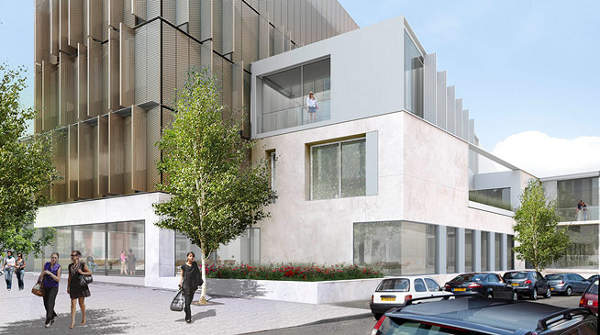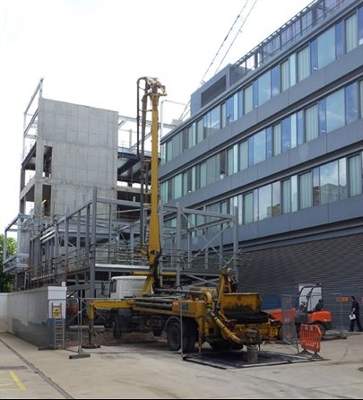The Maurice Wohl Clinical Institute is located within the psychiatry institute of King’s College London’s Denmark Hill campus.
Construction of the facility started in 2011 and was completed in June 2015. The building acts as a link between laboratory research and the development of new therapies. It was jointly developed by the King’s College London and King’s College Hospital.
The institute received a Royal Institute of British Architects (RIBA) national award in 2016.
Neuroscience facility details and design
The institute is a five-storey building with a total floor space of around 9,611m². The facility accommodates 250 clinicians and scientists, with space for office facilities and a 100-seat flexible seminar hall.
A public court is located between the James Black Centre and the Weston Education Centre.
Researchers at the institute focus on establishing major genetic risk factors for neurodegenerative disorders. They identify early diagnostic tests and predictive biomarkers of diseases. The next phase of the current research project involves development of innovative cellular and animal disease models to speed up drug discovery.
The facility provides a new approach for people that are affected by psychiatric and neurological conditions. It is a leading European facility for neuroscience research and developing new treatments for patients suffering from diseases such as Alzheimer’s, Parkinson’s and epilepsy.
The building is also used to research neurotic and psychotic diseases and their treatment mechanisms. It is equipped with clinical laboratories and diagnostic tools to find new therapeutic interventions.
In addition, it is supported by positron-emission tomography (PET) imaging and radiochemistry laboratories.
Maurice Wohl Clinical Neuroscience Institute construction
The construction of the neuroscience building involved a large basement area, bulk excavation and in-situ concrete works to the substructure and superstructures.
The building is a framed structure resting on pile footings. It features glazed, concrete-faced and metal-clad elevations.
Contractors for the neuroscience institute
The institute’s design was provided by Devereux Architects in association with Allies and Morrison Architects. The contract included developing the shell, façade and public areas of the building.
Devereux Architects were also given a £1m ($1.51m) contract to design the surrounding landscape.
In February 2011, Morgan Sindall was awarded a £26m ($39.25m) contract for the construction of the neuroscience research building.
AECOM served as the structural engineer and Hoare Lea acted as the services engineer for the project. Turner and Townsend was appointed as the quantity surveyor of the project and MACE was the project manager. Metropolis was the planning consultant of the project.
Sustainable facility design and construction
Related project
The Francis Crick Institute, London, United Kingdom
The Francis Crick Institute (previously known as the UK Centre for Medical Research and Innovation, or UKCMRI), is an interdisciplinary medical research centre being developed in London, UK.
The building achieved excellent BREEAM rating. It features variety of permanent automated sun-shading structures.
The new building also includes other sustainable features such as natural ventilation with active chilled beams, ground source heating and combined heat and power.
Funding for the Maurice Wohl Clinical Neuroscience Institute
The total estimated investment for the construction of the project is around £42m ($63.41m). The project was funded by the Maurice Wohl Foundation, the Higher Education Funding Council England, the Science Research Investment Fund and the Garfield Weston Foundation, as well as the Wolfson Foundation, the King’s Medical Research Trust and the South London and Maudsley NHS Foundation Trust.





